The Fi Europe Startup Innovation Challenge 2023

Catapulting global food ingredient startups to success
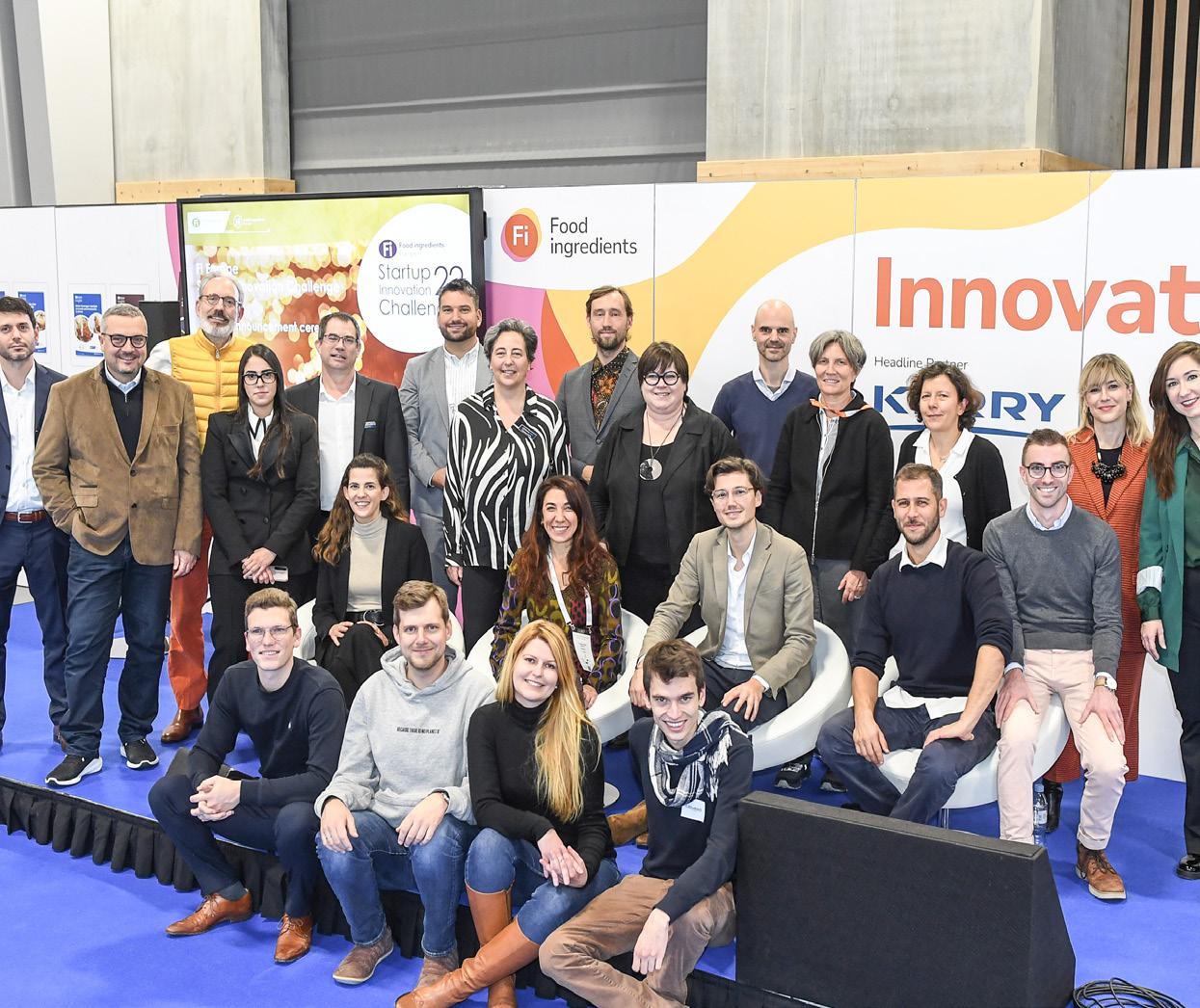
3 6 10 12 14 18
Contents
The Fi Startup Innovation Challenge: Advancing ingredient innovation since 2016


Why take part in the Fi Startup Innovation Challenge 2023?
Testimonials from 2022 winners
A stellar panel of industry experts: Meet the judges
Pitch perfect: How to impress the judges at the Fi Europe Startup Innovation Challenge
Find out more about the 2022 winners
Fi Europe Insights: Shining a spotlight on startup innovation
EQUII uses microbe-led tech to transform bread
Making mycelium mainstream through patented technology

Nulixir applies patented encapsulation tech to functional ingredients
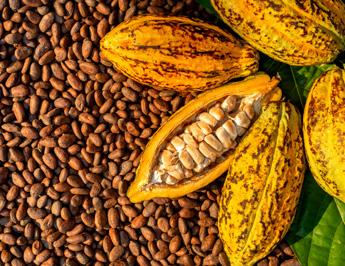
2 | The Fi Europe Startup Innovation Challenge 2023
The Startup Innovation Challenge: Advancing ingredient innovation since 2016
Since its beginnings in 2016, the Fi Europe Startup Innovation Challenge has been offering a unique platform to showcase startups’ ingredient innovations and amplify their message to an audience of potential partners and investors at Fi Europe, the annual global meeting of thousands of decision-makers in the food ingredient industry.

Startups active for five years or less can apply to as many of the categories that are relevant to them, free of charge.
All finalists gain access to the Startup Lounge at Fi Europe 2023, held in-person in Frankfurt, where they can meet and mingle with industry stakeholders and gain valuable exposure when pitching their solutions on stage at the Innovation Hub.
The award ceremony and startup pitches are also livestreamed to attendees watching from around the world via the Fi Europe 2023 online platform. These pitches are then available to watch on-demand on the Fi Global Insights website all year round, further increasing visibility.
The winning startups can also choose from one of three high-value prizes:
• A fully equipped exhibitor stand at Fi Europe for the following year, as well as a Premium Profile on the Ingredients Network directory, which attracts more than 72,000 unique ingredient buyers every month.
• A digital marketing package for Ingredients Network and Fi Global Insights to promote their online presence throughout 2024.
• Mentorship and support from one of our jury members. This could include one-to-one coaching sessions; the opportunity for potential pilot work; or access to corporate collaborations and accelerator programmes.
Click here
to submit your application to 2023 Startup Innovation Challenge hosted in Frankfurt before the 1st September deadline.
insights.figlobal.com | 3
All startups active for five years or less with innovative solutions for the food and drinks industry are encouraged to apply!
Fi Europe 2023 Startup Innovation Challenge Categories



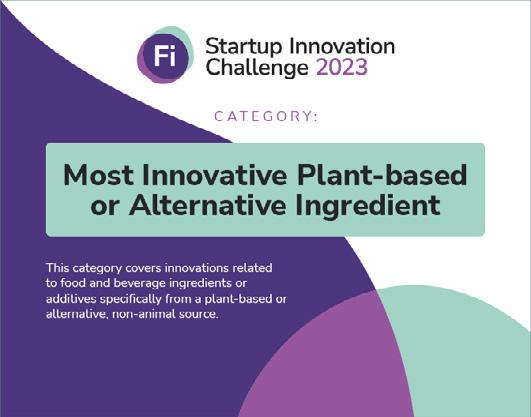
In addition, a special jury’s choice award will be awarded to one of the finalists:

4 | The Fi Europe Startup Innovation Challenge 2023
Fostering disruptive innovations for a sustainable food system
Startups are defining and designing the innovative food ingredients of tomorrow, but often lack the scale and funds to bring their solutions to market. Connecting with the right partners is therefore a fundamental part of any startup’s journey, and the Fi Europe Startup Innovation Challenge is the ideal place to do so.
The Startup Innovation Challenge was the brainchild of nutrition consultant and food industry expert Sandra Einerhand, who worked with the team at Fi Europe to make it a reality. According to Angelique Cachia, director of content and digital at Fi Europe, the Challenge is unique in the high-level exposure it offers startups.
“The Startup Innovation Challenge is co-located with Fi Europe, the annual meeting place of R&D scientists, food technologists, product developers, and senior management,” says Angelique Cachia. “In other words, people who are razor-focussed on scouting out the most interesting ingredient solutions. The benefits to startups of such industry interactions are immeasurable.
“At Fi Europe, we are proud to make such connections possible, fostering food industry innovations that are truly disruptive and that will contribute to creating a more sustainable future food system, providing safe and nutritious food for all.”
Einerhand adds: “The Challenge gives startups the opportunity to get exposure and potentially get investors interested in what they're doing. But there are also benefits for the food ingredient exhibitors; with startups, everything is in development, so you can, early on, interact with them to see whether they fit your company or your product development.”
2023 in numbers

+ F&B ingredients exhibitors 24,000 + Attendees online and in-person 135 + Countries represented 10 days Of online and in-person networking insights.figlobal.com | 5
Fi
1,200
Why take part in the Startup Innovation Challenge 2023? Testimonials from last year’s
winners
The Startup Innovation Challenge has played a pivotal role in accelerating the businesses of many startups - as previous participants in the Challenge testify.
What were the benefits for you of participating in the Fi Startup Innovation Challenge?
“Startups participating in the Fi Startup Innovation Challenge at this event have many opportunities to connect with potential partners, investors, and industry professionals. The event offers a unique platform for startups to pitch their ideas, gain exposure, and make valuable business connections.”
Did you make interesting/useful business connections by attending Fi Europe & pitching in the Challenge?

“Yes! We met leading companies of the food and beverage industry and with some we are already in product development phase. I can recommend applying to the challenge. The effort put into the application [...] really pays off when reaching the finals.”
Do you have any news to share about Kern Tec since December 2022?
“Next to scaling the production capacities and the team size, we have launched a couple of new products including yoghurts made from our fruit seeds.”
6 | The Fi Europe Startup Innovation Challenge 2023
Luca Fichtinger, founder, Kern Tec: ‘The effort put into the application really pays off’
What were the benefits for Bio2Coat of participating in the Fi Startup Innovation Challenge?
“To be selected among the finalists of the FI Startup Innovation Challenge, along with so many other great start-ups, was already a huge honour for us, Given the high level of the competition, we didn’t know what to expect out of the results, so it was a super nice surprise when we were announced as the Most Innovative Service, Technology or Digital Solution Supporting the Food & Beverage industry. We were thrilled! And then, suddenly, we were called again on the stage to receive the jury´s choice award as the Most Innovative Sustainable Solution. It was an amazing moment. We couldn’t have been happier!
“The participation and prizes were great recognitions of the work we have been doing in the past two years. It really boosted our motivation and gave us reassurance that we were on the right path. It also gave quite some visibility within the foodtech ecosystem and with potential investors. We proudly added the wins to our investor’ deck and the prizes to our shelf.”
Did you find it a useful opportunity to network with food industry stakeholders?
“Yes, definitely. We met a few potential investors, other start-ups with whom we can synergise and collaborate, and a few potential customers with whom we remain actively connected to this day.”
Does the Startup Innovation Challenge offer any advantages over other startup competitions?
“Without a doubt. There are a lot of very interesting events out there, but the Fi Europe Start-Up Innovation Challenge is one to prioritise if they are looking for meaningful business and commercial connections.
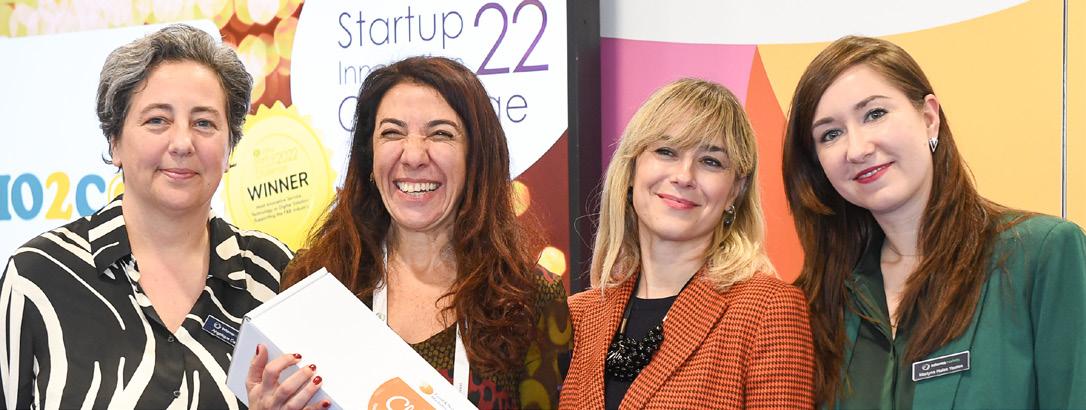
“Everyone in the food ingredients business knows about Fi. It’s a global-scale event with a long history and tradition and with strong participation of very relevant professionals and decision makers in the food industry.
“In addition, the whole process was very well planned and organised, allowing for effective preparation. Last, but not least, there is a lot of media attention, and wins are widely communicated across all relevant channels.”
insights.figlobal.com | 7
Farayde Matta Fakhouri, chief scientific officer, Bio2Coat: ‘Meaningful business and commercial connections’
Gali Fried, vice president of business development and marketing, Vanilla Vida:
Did you make useful business connections by attending Fi Europe & pitching in the Challenge?

“We were able to establish relations with one potential client, and we received a more serious approach from other companies that we approached for the first time. Furthermore, the excitement surrounding our victory in the challenge garnered compliments from existing clients, which saw it as an important recognition of the industry in Vanilla Vida's capabilities."
Would you recommend other food ingredient startups to apply to the Challenge?
Yes, [...] it offers a range of advantages over other startup competitions. Firstly, it provides access to a global Fi Europe, which attracts a diverse audience from the food industry. This exposure can significantly enhance visibility and increase the chances of making valuable connections.
“Additionally, the Challenge brings together a panel of judges from relevant companies in the industry, providing an opportunity for startups to open relationships with key players and potentially gain support from industry leaders.
“Overall, participating in the Challenge can be a gamechanger for food ingredient startups, offering a unique platform for growth, recognition, and networking.”
8 | The Fi Europe Startup Innovation Challenge 2023
‘This Challenge can be a game-changer for food ingredient startups’
Yoav
Earon,
chief
business officer, Brevel: ‘A wave of inquiries and interest’
What were the benefits for you of participating in the Fi Startup Innovation Challenge?
“Exposure to the EU ingredients ecosystem and winning the prize has garnered significant recognition for Brevel both in Israel and globally. The achievement has generated substantial interest and positive buzz surrounding the company. Following our participation in the event, we received numerous approaches from individuals who had seen us there. Additionally, the PR efforts surrounding our success have resulted in a wave of inquiries and interest.
“Moreover, securing a booth and exposure for the 2023 event ensures that Brevel will continue to benefit from increased visibility and opportunities to engage with potential partners, investors, and customers.”
Did you make interesting/useful business connections by attending Fi Europe & pitching in the Challenge?
“Pitching in the challenge created tremendous exposure. We created relationships with various players in the value chain, met startups with similar challenges, industry leaders, potential customers, and potential partners for joint ventures.”

insights.figlobal.com | 9
A stellar panel of industry experts: Meet the judges
Michael Dovbish is executive director of US-based Nutrition Capital Network, an event and data platform connecting health and nutrition founders with investors and industry corporations seeking investment opportunities and other partnerships.

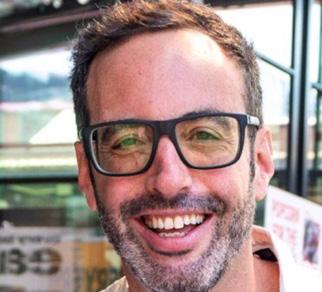

Gil Horsky is the managing director and founding partner of FLORA Venture, an early-stage VC fund for purpose-driven entrepreneurs at the intersection of agrifood, sustainability, health, and tech. Gil Horsky has over 15 years’ experience in global leadership roles at leading food multinationals, including Mondelēz, Kraft Foods, PepsiCo and Nestlé.

Kevin Camphuis is co-founder of ShakeUpFactory, a reference business accelerator and open innovation boutique dedicated to food and agtech. Based inside Station F in Paris, it gathers a unique ecosystem of over 300 international startups and corporations.
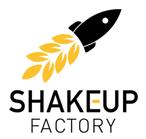

Eline Boot is head of global partnerships at Foodbytes by Rabobank, an online connection hub for startups, corporates, and investors. She is a specialist in the food and agriculture industry with over a decade of experience in startup and corporate innovation and investment banking.


10 | The Fi Europe Startup Innovation Challenge 2023
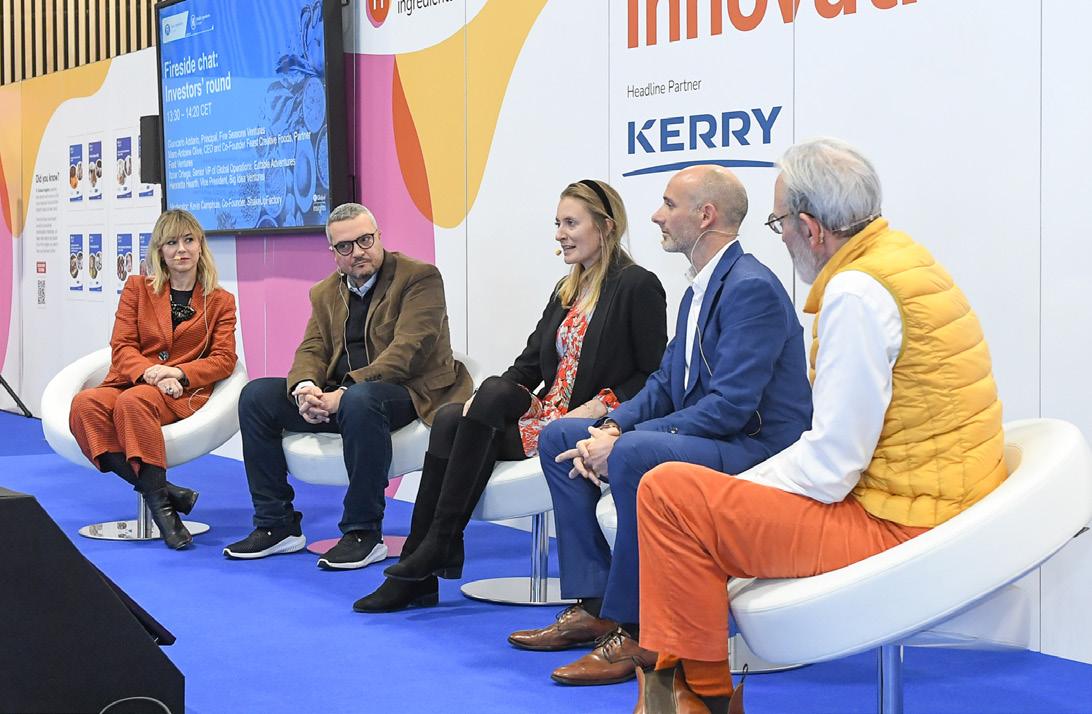

insights.figlobal.com | 11
Pitch perfect: How to impress the judges at the Fi Europe Startup Innovation Challenge
We spoke to Giulia Crastolla, investor relations manager at Netherlands-based zero-equity accelerator StartLife and first-time judge at the 2023 Startup Innovation Challenge in Frankfurt, to get some tips on how startups can stand out from the crowd and really impress the judges.
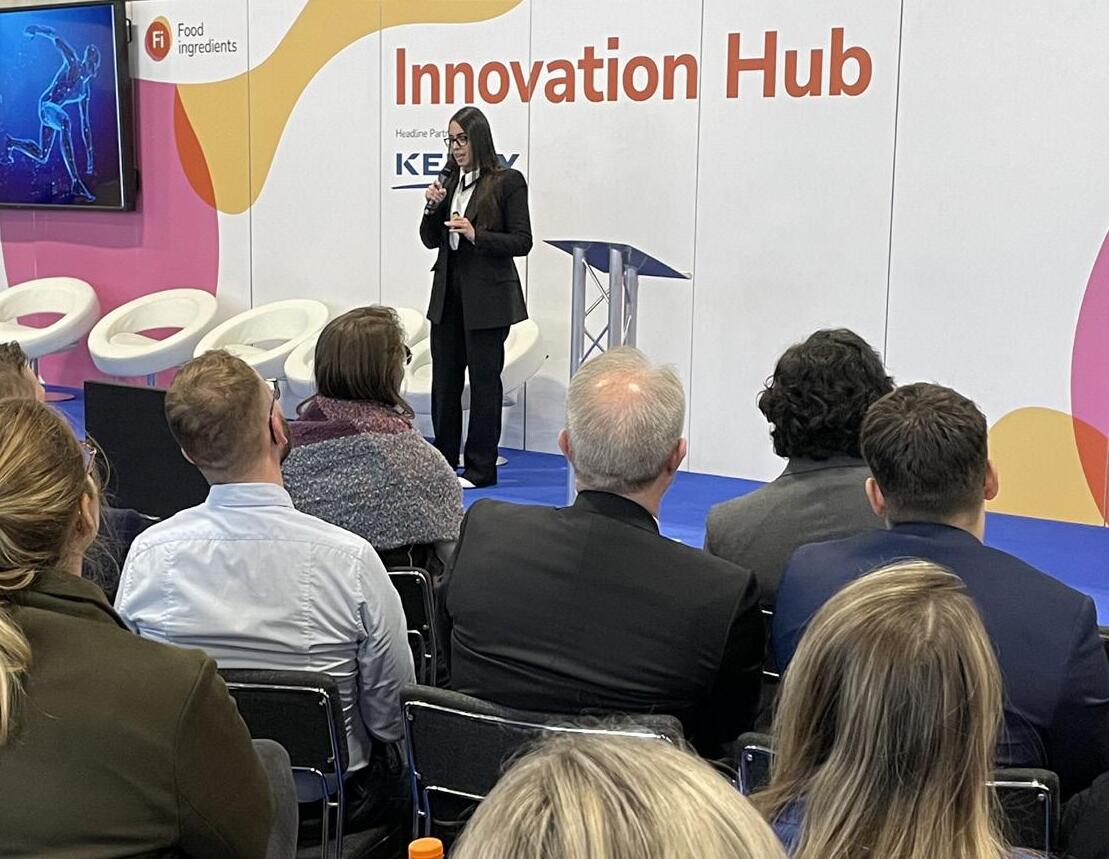
What qualities will you be looking for in the winning startup?
“When evaluating startups, I always look at innovative technologies with a strong sustainable solution and a scalable business model [that is] led by the right team.
“It is an honour to be part of the jury members for this year’s Innovation Challenge at Fi Europe, knowing the great quality of startups from the previous years, as well as the network that gathers during those days.”
Do you have a message for any startup that is thinking of applying?
“Think big, act small. Prove what you claim because this is what shows you can achieve your company’s mission.”
12 | The Fi Europe Startup Innovation Challenge 2023
There are many startup pitches and competitions. Why should ingredient startups apply to the Fi Europe Startup Innovation Challenge in particular?
“I would say it relates to the great visibility [because] the Fi Europe event [is] a well-known event to attend with a network around it. Great investors, industry leaders, and facilitators will be there, potentially able to support the startups.”
The food industry faces some huge challenges, from diet-related diseases to climate change but it is also a significant contributor to these problems. Are you confident that enough innovation is happening at a startup level to meet these challenges?
“Many startups, scale ups, and big companies are working to find solutions to the many industry challenges. What I believe matters is not about the number of innovative solutions out there, rather about finding the successful cases that are really making the difference and positively impacting the challenges. More infrastructure, capital, and supporting regulations are needed to make these innovations fly.”

Sign up now insights.figlobal.com Discover the latest food ingredients trends & insights Join our FREE Newsletter
Find out more about the 2022 winners
Kern Tec creates a new nut through sustainable fruit seed innovation
By removing harmful toxins from stone fruit kernels, Kern Tec has made it possible and economically viable to extract high-value protein and oils from a by-product that was once considered waste.
It won first place in the Most Innovative Food or Beverage Ingredient category.
We spoke with co-founder Luca Fichtinger about the role of innovation in tapping new healthy ingredient opportunities, the challenges of bringing something new to the market, and why recognition of sustainable solutions in the food sector matters.
Valorising fruit waste streams
“The inspiration for Kern Tec came straight from Austrian farmers and small fruit processing companies,” explains Fichtinger. “They were complaining to us about the huge side streams that are created throughout the value chain. As we looked deeper into these streams, we discovered that some factories are having to deal with a couple thousand tonnes of pits every single year.”
Fichtinger and his team realised that this massive amount of waste represented an untapped opportunity. “There are valuable seeds inside these pits, similar to almonds,” he says. “We know that the plant-based and nut market are among the fastest growing segments in the food industry. We saw an opportunity to create an exciting new process to better exploit this ingredient.”
Problem solving at every stage
Not everything was plain sailing from the beginning. “We had two main challenges at the start,” notes Fichtinger. “First, we needed to develop a mechanical line to separate seeds from the different pits. As cherry pits differ in size and shape from plum pits, for example, this was a tough challenge. Finally, though, we were able to develop one line for all pits and seeds.”
Second, Fichtinger and his team needed to ensure that the seeds left over were safe for consumption. This meant finding new ways of removing harmful substances, such as cyanide. “For this, we had to develop a method from scratch in our labs,” says Fichtinger. “After many trials and errors, our team managed to invent a proprietary method to extract cyanide, not only from fruit seeds but also from other products such as oilseeds. This was achieved without impacting on nutrition or taste.”
Recognising sustainable solutions
Fichtinger believes that Kern Tec is tapping into a fundamental shift within the food sector. More and more businesses are looking to invest in sustainable practices, driven in part by consumer demand for products that have minimal environmental impact.
This means working with more sustainable ingredients and going for zero-waste approaches. Achieving both these objectives will require more out-of-the-box thinking, as exemplified by Kern Tec. “We have big plans to further scale up our value chain, ‘rescue’ more pits and bring more and more products - mostly in the alt-dairy category - to market,” Fichtinger concludes.
14 | The Fi Europe Startup Innovation Challenge 2023
Bio2Coat recognised for edible coating innovation
Bio2Coat’s edible coatings and packaging ensures extended product shelf life while removing the need for plastic. It won the Most Innovative Sustainable Solution category, as well as the Most Innovative Service, Technology or Digital Solution Supporting Food and Beverage category.
Solutions to sustainability challenges
“The idea for Bio2Coat came about as a result of a long-standing research collaboration between fellow co-founder José Ignacio Velasco and myself,” explains Farayde Matta. “Back in 2011, when our partnership began, we realised that we shared the same passion for sustainability and had the same concerns about food waste and plastic use.”
Using their combined expertise in food and material sciences, Velasco and Matta began searching for technologies to address these challenges. This wasn’t always easy, as initially Matta was based in Brazil, while Velasco was based in Spain.
“We had to be careful that there was no duplication of effort and resources,” notes Matta. “Finally in 2016, I moved to Spain and José, and I started to work side by side at the University Politècnica de la Cataluña.”
Turning innovation into a business proposition
After years of careful research, they concluded that edible coatings could be used to address both problems at the same time. In 2018 they secured a patent, and two years later, in December 2020, Bio2Coat was born.
“The edible coating category is not a new one, but our technology goes beyond what is out there,” explains Matta. “Our 100% natural, edible coating offers a wide range of applications across several product ranges. This coating can also be converted into a fully edible packaging material to replace the plastic in vacuum bags, sealed pouches, and semi-rigid trays.”
The next challenge was to convert this idea into a successful business enterprise. “This is when we were introduced to EIT Food, and joined the EIT Seedbed programme,” explains Matta. “The programme was instrumental in transforming our concept into something tangible.”
Field trials of Bio2Coat’s innovation with major fruit and vegetable producers in Spain are currently underway, and results have been very positive. Consumer assessments have shown high levels of public awareness when it comes to food waste and plastic use.
Achieving recognition for bright ideas
Matta recognises the importance of awards such as Fi Europe’s Startup Innovation Challenge in helping to bring innovation to the market. “When we learned that there would be a startup competition at Fi Europe and that our technology was eligible, we didn’t hesitate for a minute,” she says.
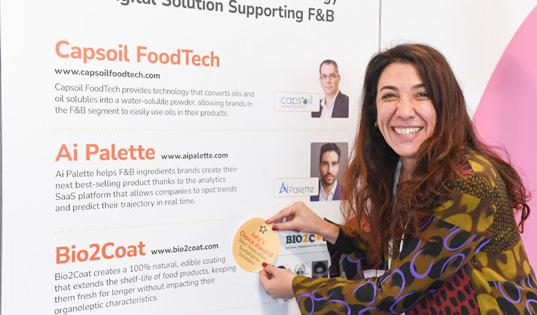
“We knew we had a chance, but the competition was fierce! All finalists presented great projects. So, when it was announced that we had won not one but two prizes, the surprise was even bigger. We couldn´t have been happier. To have public recognition like this is very rewarding, and super motivating to continue working. With these prizes, we feel reassured that we are [on] the right path.”
The awards also come at a critical time for Bio2Coat.
“We are at a crucial moment in the life of any startup, which is the first financial round,” says Matta. “Following this, our plan is to begin production, and have our first sellable product on the market in the first half of 2023.
“What really sets us apart is the positive impact that our technology can have on food waste, which remains a global issue. Our solution not only addresses the whole scope of this problem, but can make a difference across the whole supply chain of fruits and vegetables.”
insights.figlobal.com | 15
Vanilla Vida set to shake up the global vanilla bean sector
Vanilla Vida’s cutting-edge harvest and post-harvest vanilla bean technology is promising to shake up global production of the world’s favourite flavour. The Israeli startup won first prize in the Most Innovative Processing Technology category at the Fi Europe Startup Innovation Challenge.
We spoke with vice president of business development and marketing Gali Fried about applying innovation to leverage an identified market opportunity; the confidence needed to bring fresh ideas to market; and why this award is different from other accolades.
Israeli startup Vanilla Vida was recognised for its innovative vanilla bean processing technology, which it hopes will revolutionise this challenging and complex market. Co-founder and head of agriculture Shlomy Kadosh – who has a background in agriculture - was growing kiwi in northern Israel when he started reading up about and visiting various vanilla growing projects from around the world. He believed he could grow vanilla in climate-controlled conditions not only better, but to industrial scale.
To do this, he reached out to Oren Zilberman, who worked for a venture capital fund investing in agriculture and convinced him to come on board. Support was also given from the Strauss Group – a major food company in Israel – as well as the Kitchen FoodTech Hub.
“The idea was to develop a truly vertically integrated, one-stop-shop solution for natural vanilla,” explains Fried. “The pair also managed to get one more cofounder on board. This was Raz Krizevski, who holds a PhD in plant aromas and is an expert in agtech and foodtech. He has been key to developing our curing process, which helps us to achieve a concentrated
vanilla bean that offers a cost-effective solution for manufacturers.”
From agriculture to post-harvest
From the start, Vanilla Vida was clear about the need to develop cutting-edge solutions at both the agricultural stage and post-harvest stage. These could then be combined to deliver a unique approach to growing and curing natural vanilla.
“Growing vanilla is very complex,” says Fried. “Even under controlled conditions, plants vary from season to season and farmer to farmer. Once you get vanilla beans into a sorting facility, you need to be sure that you are comparing like-with-like.”

To achieve this, Vanilla Vida focused on collecting and analysing huge amounts of agricultural data, to ensure that water use is optimal and that beans are only harvested when mature. This data-driven approach to growing vanilla is one element that makes Vanilla Vida’s approach to growing unique, it says.
At the same time, the company has been working on its post-harvest technology. It has developed a unique approach to curing to deliver a concentrated sensory profile. “We have been working with early adopters to continually improve this technology,” says Fried.
Meeting global demand for vanilla
While 2022 was about scaling up post-harvest curing technology, 2023 will be about scaling up on the agriculture side. More greenhouses will be built inside and outside of Israel, with potential partners in the frame.
“Our target market is primarily industrial flavour and fragrance houses,” says Fried. “But we are also interested in the gourmet market – restaurants and enduse customers - which could be great for building our brand. There is also potential for us to license out our post-harvest technology for use on other crops.”
Ultimately, Vanilla Vida believes that its complete solution – from growing through to processing - will help meet global demand for natural vanilla in a responsible and sustainable way. “We believe our technology fills a need,” says Fried. “Our challenge now will be to complete our agricultural proof of concept, as we have done on the post-harvest side, and scale up.
16 | The Fi Europe Startup Innovation Challenge 2023
Brevel awarded for tasty, sustainable, affordable microalgae innovation
Brevel’s sustainable microalgaebased protein, made by fermenting sugar with a high concentration of light, received the Most Innovative Plant-Based or Alternative Ingredient at the Fi Europe Start-up Innovation Challenge 2022.
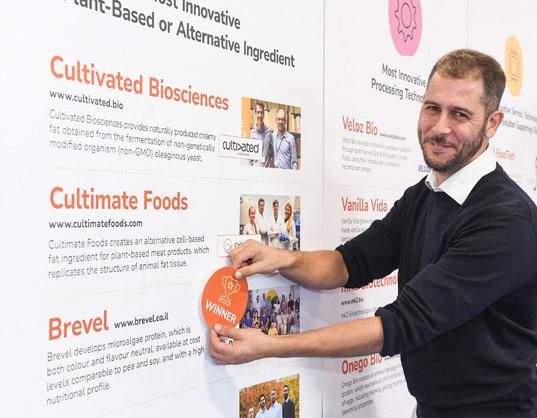
We spoke with Brevel's chief business officer Yoav Earon about the challenges of developing innovative production processes, tapping opportunities in the plantbased protein market, and bringing sustainable nutrition to consumers
Brevel’s award-winning technology combines the sugar-based fermentation of microalgae with a high concentration of light at industrial scale. The result is a protein that the company says is price competitive with pea and soy and – just as importantly – tasty. The start-up’s success is the result of years of dedication to developing an alternative protein ingredient that fully meets expectations for cost competitiveness, nutrition, and flavour.
“Brevel was co-founded by the three Golan brothers,” explains Earon. “Matan, chief operating officer, trained as a surgeon and spent days treating unhealthy patients. He wanted to help people live a more healthy and nutritious life before they get to the point of needing a doctor. Ido, chief technical officer, is an engineer with a background in microalgae, who invented a new way of producing microalgae efficiently and at very high quality. Yonatan, chief executive officer, is vegan, and wanted to find solutions for feeding our growing population in a sustainable and ethical way.”
While all three agreed that microalgae provided the most viable solution to achieving this goal, they were aware that overcoming cost and quality issues has consistently presented a barrier to market entry for many alternative protein solutions.
For this reason, they decided to launch Brevel to fully address this challenge themselves. Their solution - to combine sugar-based fermentation and light in a single process - produces affordable, nutritious microalgae at very high yields.
“The uniqueness of our technology enables us to provide alternative protein that addresses all food sector concerns - flavour, colour, functionality, allergenicity, and cost,” says Earon.
Scaling up to meet market demand
Brevel is confident that its innovation meets both industry needs and consumer expectations for sustainable nutrition. “Microalgae are by far the most sustainable source of protein on this planet,” explains Earon. “Compared to soy - the leading plant-based protein today - microalgae are 99.95% more efficient in terms of land, 67% more efficient in greenhouse gas emissions and 55% more efficient in water usage.”
Current production methods employed by microalgae companies, says Earon, are not cost-efficient enough for mass-market relevancy. On the other hand, alternative plant protein sources such as pea, hemp, and others may be cost efficient, but often lack performance in terms of flavour and functionality.
According to Earon, Brevel's protein delivers a very mild flavour and colour, making it suitable for food applications where flavour masking is not an optionmostly plant-based dairy and egg alternatives. “These food applications currently don't have suitable solutions today at affordable costs,” he says.
Brevel is currently in discussions with food manufacturers around the world involved in developing plant-based products. The company is building its first commercial factory in Israel, with the aim of delivering products to shelves later this year.
“We are currently piloting with more than 30 different companies and are in the process of signing several commercial agreements,” says Earon. “Our aim is to become the number one choice for plant-based protein worldwide.”
insights.figlobal.com | 17
Fi Global Insights: Spotlight on startup innovation in the food and ingredient industry
The Fi Global Insights bi-monthly newsletter covers food ingredient news and analysis all year long, including the best of startup innovation. Here is our pick of three articles showcasing startups making waves thanks to their disruptive ingredients, products, and tech-driven solutions.

18 | The Fi Europe Startup Innovation Challenge 2023
EQUII uses microbe-led tech to transform bread
Fermentation startup EQUII uses synthetic biology to boost bread’s nutritional profile by converting grain starch to protein.
EQUII, formerly Cella Farms, is bringing alternative protein development and use to the carbohydrate segment, specifically bread.
For years, the food industry has welcomed many global brands engaging in fermentation to produce alternative proteins. Yet, these brands have often focused on the meat-mimicking and dairy replacement scene. Now, it is the turn of bread.
Tradition meets technology
Launched by two scientists, Dr Monica Bhatia and Dr Baljit Ghotra, and a chef, Sebastien Cannone, in 2021, the trio engaged in years of research and development (R&D) to devise a fermentation process to produce bread. The startup, created by the three long-standing food industry specialists, landed on using synthetic biology to convert grain starch to protein and enhance bread’s nutritional profile.
Recognising grains’ inherent sustainable nature, EQUII began exploring how it could continue to include grains in the process of making bread, but do so in a way that elevates the nutritional profile of the end product.
EQUII’s proprietary approach uses microbial protein sources high in nutrition to ferment grains and develop grain flours high in protein to manufacture bread. The technology works by adding microbes, in this instance yeast, to grains such as wheat. The microbes then break down the starch, causing some of the grain’s carbohydrates to release sugar. The process converts these grains into protein.
The fermentation tank contains wet biomass formed from microbial biomass and plant biomass. This wet biomass undergoes further processing to ensure the proteins are refined and function as required to create a product that is rich in proteins. The end baked product is labelled as wheat flour and yeast protein to demonstrate the collaboration of traditional and alternative protein ingredients.
Using its technology and approach, fermenting the wheat grain ensures the native protein remains unchanged and does not fall under the category of a novel protein, it says.

Nutritional value leads
EQUII’s bread, which comes in classic wheat, multi-grain and variety pack options, contains 10 g per slice. The startup’s chef, Sebastien Cannone, creates recipes with its bread to add 10 to 2 0g more protein to consumers’ meals to demonstrate how to maximise the nutritional profile of food cooked at home.
Its product includes more than twice the protein, fewer than 30% carbohydrates and less than 50% sugar, compared to other leading brands, EQUII shares on its website. The startup’s bread also contains all nine essential amino acids.
Re-envisioning the cupboard staple
Rabobank’s food and agricultural discovery hub, FoodBytes!, chose EQUII as one of 45 companies to participate in its annual programme. The startup was selected for its leadership and development of diversified ingredients, contributing to the programme’s central theme of meeting new consumer demand. The programme champions brands that have developed solutions based on how the consumer of 2030 and beyond will shop for, eat and assess the food they buy and consume.
EQUII raised $6 million (€5.5 million) in seed funding in September 2022 to expand its first commercial offering of sliced bread to restaurants, cafes, and online audiences. During the round, Khosla Ventures, a financial investor in Impossible Foods, an early adopter and prominent name in plant-based meat substitutes, backed EQUII. A further rollout to retail stores and direct-toconsumer (DTC) is expected to occur later in 2023.
To date, EQUII has raised $8 million (€7.3 million) from various investors from the agricultural technology, food technology, artificial intelligence (AI), precision fermentation and synthetic biology sectors.
The startup plans to grow its product offering to include rolls, bagels and buns. Moving beyond the food service sector, the startup is also looking to supply grain flour to grain-based manufacturers to provide an alternative to traditional bread.
insights.figlobal.com | 19
Making mycelium mainstream through patented technology

Mycelium technology company Ecovative is helping brands create better plantbased products by developing patented processes to improve mushroom and mycelium production and processing.
Interest in the alternative protein source is increasing, with the Good Food Institute (GFI) tipping the interconnected network that makes up the mass of many fungi varieties to be a leading trend in 2023.
Mycelium is a structure comprising root-like fungus that contains a mass of branching and thread-like hyphae. It contains fibre, vitamin D, and protein. If mushrooms are the fruiting part, mycelium represents the root-like network of fungi, which typically grow underground or inside trees. Using a fermentation process, manufacturers can take these mycelium structures to create meat-mimicking textures and whole cuts.
Mycelium producer, MyForest Foods, is one brand utilising mycelium by taking mushroom roots from the forest and growing them indoors to create whole pieces of plant-based meat.
In launching the US-based brand, it wanted to bring tasty meatless foods to market to feed the planet sustainably.
“Gourmet, wild mushrooms offer distinct, savoury, umami-rich flavours, while their mycelial “roots” naturally weave together, much like the network of muscle tissues in animals,” Sarah-Marie Cole, chief marketing officer at MyForest Foods, told Fi Global Insights.
20 | The Fi Europe Startup Innovation Challenge 2023
Patented tech to recreate meat
MyForest Foods forged a relationship with Ecovative, a mycelium technology company, and utilised its patented AirMycelium technology. Ecovative holds over 40 patents in 30 countries worldwide for solid-state fermentation and mycelium technology.
Through its platform technology, AirMycelium works by guiding geometrical mycelia patterns and utilising biological processes to produce various materials. MyForest Foods uses vertical farms to grow mycelium products at an industrial scale.
The technology provides MyForest Foods with a way to make natural foods that seek to replicate traditional meat’s organoleptic properties. Growing AirMycelium uses less water and land than conventional animal agriculture practices, Cole says.
Landing on mycelium manufacturing
Ecovative’s research and development (R&D) lab, the Mycelium Foundry, has created a network of mycelium divisions: Mushroom Packaging in 2008, MyForest Foods in 2020 and Forager Hides & Foams in 2022.
“Through the Foundry’s vast mycelium library, each division is equipped with a deep, biological understanding of fungi,” says Cole. Through this knowledge base, each team can amplify specific mushroom strains’ most useful natural properties to create food.
However, mycelium production to create plant-based foods cannot sacrifice flavour. Taste is paramount to satisfying consumers’ needs. “Many plant-based products have long ingredient lists; they rely on fillers and binders to create meat-like textures,” says Cole. MyForest Foods’ star ingredient, mycelium, provides the brand with a farm-grown, whole-cut advantage, while minimal, familiar ingredients accentuate its flavour.
Utilising pivotal and pioneering technologies
The vertical farming technology allows the brand to adjust several environmental factors to control the shape and density of mycelium as it grows. Introducing mycelium enables the brand to develop large structures that resemble — and can be sliced like—whole cuts of meat with a similar mouthfeel to chicken, fish, and bacon. After harvest, the brand slices its mycelium into strips and uses minimal ingredients to create its product’s flavour.
“Mycelium is grown on a special blend of wood chips and other plant materials,” says Adam Heinze, director of operations at MyForest Foods.
Replicating the environmental factors of the forest, the brand entices the mycelium to grow up and out of the substrate—towards the sky (hence the name AirMycelium). “We have fine-tuned and dialled in on just the right growth medium, air quality and water content to help our mycelium grow into dense, whole cuts that can be sliced just like meat,” says Heinze.
Growing the mycelium of coveted gourmet mushroom strains in vertical farms, the brand can produce the same desirable textures and flavours in natural gourmet mushrooms in faster time frames of 12 to 16 days versus 12 to 16 weeks.
Upcycling key ingredients
“A major element we upcycle is our substrate, mycelium’s growing medium,” says Cole. MyForest Foods uses byproducts from the hemp and forestry industry to create the substrate. The spent substrate has multiple uses, from soil remediation to creating fertilisers and composts.
To date, MyForest Foods’ farm-grown mycelium has applications in the pork alternative and soon-to-be beef alternative markets. Its flagship product is MyBacon, a plant-based bacon. MyJerky, a plant-based beef jerky derived from the same mycelium ingredient, will be rolled out in 2023. Cole describes the release of the brand’s second product as “our gateway to the beef alternative market”.
For MyBacon, the brand’s inaugural product, MyForest Foods introduced oyster mushroom mycelium to an optimal growing environment, replicating the forest’s conditions. MyBacon offers the taste and texture of traditional pork bacon using six ingredients: mycelium, salt, sugar, coconut oil, natural flavours, and beet juice for colour.
Since mycelium can be used to make a limitless variety of products, including beverages and meats, the brand continues to innovate and research. “We’re incredibly excited to add to the mix as our production and harvest capabilities continue to scale,” says MyForest Foods.
insights.figlobal.com | 21
Nulixir applies patented encapsulation tech to functional ingredients
US biotechnology startup Nulixir has developed patented and customisable smart carriers called vesicles for ‘smart ingredient delivery’, it says.
The food tech company, which specialises in nutrition and immunity, is developing smart carriers called vesicles. The smart carriers’ role is to optimise active ingredients’ taste and functional performance in food and beverage products.
“The inspiration behind Nulixir was to shape the future of intelligent food,” Jay Klosterman, chief commercial officer at Nulixir, told Fi Global Insights. “Functional nutrition in today’s food, beverage and nutraceutical products is often expensive, limited to a narrow set of product applications, such as capsules or powders, tastes poorly and has a limited impact on our body.”
Despite these product limitations in the functional nutrition space, consumer demand in the segment is “soaring”, with six in 10 shoppers stating that health benefits influence their day-to-day purchase decisions.
Fostering favourable functionality
Nulixir states that functional ingredients often have four main drawbacks. Firstly, they taste poor, frequently having metallic, bitter and astringent profiles that cannot be successfully applied to everyday food and beverages.
Also, functional ingredients are insoluble in water, which limits their use in popular beverage applications. In addition, many of these ingredients are also sensitive to acid, oxygen, and light.
Finally, most functional ingredients are poorly absorbed into the body once consumed, limiting the impact consumers feel they are having, Klosterman says, which “cannot be “compensated by overdosing on these ingredients as it would negatively impact the taste and cost of the finished product”.
With its proprietary impact encapsulation and smart delivery platform, the startup aims to overcome pain points, neutralise taste, significantly reduce degradation, increase water dispersibility and substantially increase body bioavailability.
Smart carrier applications impact ingredient possibilities
Nulixir’s smart carriers are designed to increase the types of relevant applications for various functional ingredients, Klosterman says. For example, the technology can increase a product’s solubility that previously could not be dispersed in a beverage.
Additionally, the technology has the potential to create sufficient stability in an acid environment to enable use in a juice-based drink. The technology can increase vitamin stability and minimise degradation in dairy, juice, and beverage products during manufacturing, storage, and distribution, thus ensuring the majority of vitamin delivery occurs during consumption.
The brand’s technology also increases the types of functional ingredients used in the manufacturing process. “Today, bacopa, a powerful cognitive boosting adaptogen, is rarely used outside capsules due to its extreme bitterness,” says Klosterman.
Smart ingredient delivery
Smart carrier is Nulixir’s patented encapsulation technology. It releases active ingredients when and where in the body based on how the company designs these carriers. Controlling the time and location of release enables the delivery of a better-tasting and more functional nutrition system to the body, Klosterman says.
Over the past four years, Nulixir has researched how to translate this technology into food and beverage, making it both label friendly by using only Food and Drug Administration (FDA) approved ingredients and being cost-effective.
To date, Nulixir has a portfolio of over 35 patents, covering the structure of particles, manufacturing process, target active ingredients that it can encapsulate, and the functionalities and capabilities provided by these smart carriers, including release kinetics, targeted release and results from in-vivo and in-vitro trials. Using patented and customisable vesicle structures in
22 | The Fi Europe Startup Innovation Challenge 2023
food production protects a functional ingredient through the manufacturing and shelf-life production process and presents new opportunities for functional ingredient release profiles and applications in food, beverage and nutraceutical products. Vesicle structure development strives to solve food and beverage issues, such as low bioavailability, slow onset, product stability, shelf-life longevity and unpleasant flavours that emerge during the manufacturing process.
“The functional ingredients encapsulated in the Nulixir impact technology can be released once exposed to either select pH ranges or specific enzymes,” says Klosterman. Triggers, including pH ranges and specific enzymes, can be tailored to different parts of the digestive tract or organs of the body. For example, suppose an ingredient needs to be delivered to the lower digestive tract; in that case, the pH trigger can be built so that the encapsulation remains intact until encountering the pH conditions of the lower digestive system.
Solve vast food-based issues
Nulixir hopes its next generation of release capabilities will enable new possibilities in nutrition. “Nulixir’s vesicle structures first encase functional ingredients in a food-grade shell that separates the active from the surrounding media,” says Klosterman.
Using the Nulixir impact technology, functional ingredients are fully encased in a food-grade, often natural, shell. Encasing functional ingredients protects the active ingredient from sources of oxidation, acid degradation and light by creating a physical barrier between the active and the potential degradative sources. Additionally, this barrier prevents the functional active from interacting with taste receptors, thereby neutralising the taste.
On the surface of this food-grade shell, Nulixir incorporates specialised functional groups. Incorporating these functional groups increases the solubility of hydrophobic ingredients in aqueous solutions, such as ready-to-drink beverages. The functional groups also act as “switches” to “open” and release the active ingredients when and where in the body we want, subsequently increasing bioavailability, Klosterman adds.
“Collectively, the impact technology platform patented by Nulixir can address the challenges of taste, stability and shelf-life, bioavailability, and slow onset, enhancing today’s functional ingredients and supporting a healthier tomorrow.”
Transforming nutrition
Currently, Nulixir works with large internationals that recognise “innovation in nutrition is critical for market growth but lack the technological advancement to solve limitations in using functional ingredients”.

It collaborates with business-to-business (B2B) ingredient suppliers looking to take their branded ingredients to additional markets and applications through taste, solubility, stability and bioavailability improvement. Further, it works with brand owners of consumer packaged goods (CPG) who want to incorporate the technology to create highly experiential functional products with appealing taste profiles.
In 2023, Nulixir will focus on growth and hopes to further ingrain its technology in the nootropics, adaptogens, CBD, vitamins, and sports nutrition markets.
Sign up now Discover the latest food ingredients trends & insights Join our FREE Newsletter



Brought to you by Learn more about Fi Global Insights: insights.figlobal.com













































